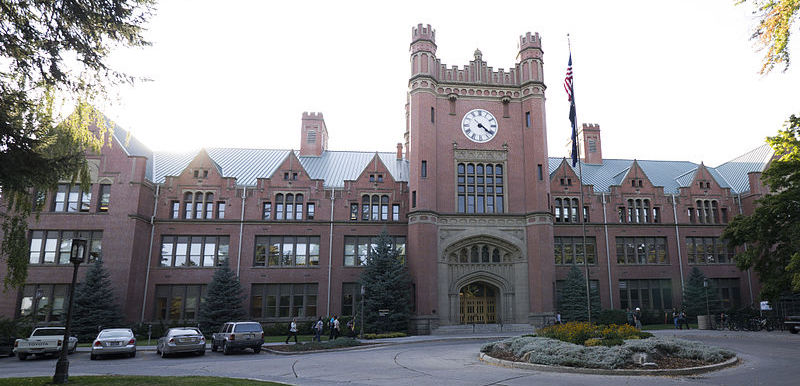Vidal Orders Amicus Briefs in OpenSky and Patent Quality Assurance
April 13, 2022 – Alexandria, VA – Portrait of Kathi Vidal, Under Secretary of Commerce for Intellectual Property and Director of the United States Patent and Trademark Office (USPTO). (Photo by/Jay Premack)
The U.S. Patent and Trademark Office (USPTO) yesterday afternoon announced that USPTO Director Kathi Vidal will be accepting amicus briefs in the Director Review of OpenSky Industries, LLC v. VLSI Technology LLC, IPR2021-01064 and Patent Quality Assurance, LLC v. VLSI Technology LLC, IPR2021-01229, both of which have been the subject of scrutiny by members of Congress and patent practitioners. Vidal also set the schedule for review, with the initial briefing and amicus briefs in both cases due by August 4, 2022, and responsive briefs of the parties due by August 18. The patents in question are the basis of a $2 billion judgment against Intel.
Sketchy Behavior is How We Got Here
The petitioners involved in the two cases were incorporated after Intel was found to have infringed VLSI’s patents in district court and have no discernable business operations beyond challenging VLSI’s patent claims. The two entities’ petitions were also nearly identical to inter partes review (IPR) petitions previously filed by Intel that had been rejected by the USPTO. Intel has now been joined as a party to both Director Review proceedings.
A late February email from OpenSky’s attorneys to VLSI’s counsel that was submitted as documentation in a separate IPR proceeding showing that OpenSky offered to ensure that its expert witness would not appear for a scheduled deposition in exchange for cash payment, contingent upon the PTAB approving a motion for joinder filed by Patent Quality Assurance.
Vidal announced in June that she would sua sponte review the Institution Decisions because the cases “[raise] novel issues of law and policy, as well as issues of particular importance to the Office and the patent community.”
No Clear Error, But Vidal Orders Amicus Briefs
Vidal found no clear error in the decisions to institute the IPRs and explained that no further briefing would be allowed as to the merits of the unpatentability challenges. The substantive IPR challenges will continue and are not stayed as she continues her Director Review, which is now limited to policy questions associated with what authority she has (if any), in the event she finds there is an abuse of process that is inconsistent with the objectives of the Office and the AIA. Toward this end, Vidal specifically encouraged the filing of amicus briefs in both cases limited to addressing the following:
- What actions the Director, and by delegation the Board, should take when faced with evidence of an abuse of process or conduct that otherwise thwarts, as opposed to advances, the goals of the Office and/or the America Invents Act (AIA); and
- How the Director, and by delegation the Board, should assess conduct to determine if it constitutes an abuse of process, or if it thwarts, as opposed to advances, the goals of the Office and/or the AIA, and what conduct should be considered as such.
Vidal also specifically ordered Open Sky and PQA to address the following interrogatories in their briefing:
- When were the entities formed? For what purpose? What is the business of OpenSky/ PQA? Who are members of OpenSky/PQA? Which other persons or entities have an interest in the entities or any of their activities including this proceeding? Explain.
- What is the relationship between the entities and each of the other parties? Other than communications already in the record, what communications have taken place between the entities and each of the other parties?
- Could OpenSky/ PQA be subject to claims of infringement of the patents at issue? Does OpenSky/PQA have development plans to create a product that could
arguably infringe the patents? Does OpenSky/PQA have a policy reason for filing the Petition that benefits the public at large beside any reasons articulated in the already-filed papers? Explain. - Does the evidence in this proceeding demonstrate an abuse of process or conduct that otherwise thwarts, as opposed to advances, the goals of the Office and/or the AIA and, if so, which evidence and how should that evidence be weighted and addressed?
- What is the basis for concluding that there are no other real parties in interest, beyond OpenSky/ PQA? Are there additional people or entities that should be considered as potential real parties in interest? Explain.
- Did OpenSky/ PQA ever condition any action relating to this proceeding, including but not limited to delaying, losing, not participating in, withdrawing from, or taking action that will influence any experts’ participation in this proceeding, on payment or other consideration by Patent Owner or anyone else? Explain.
Vidal’s Order also specifically cautioned the parties that “sanctions may be considered for any misrepresentation, exaggeration, or over-statement of the facts or law made in the parties’ briefing.”
The Orders also mandate that business formation documents, business plans, communications relating to the PTAB proceedings, communications with experts, and all communications with any named party to the proceedings “relating to the filing, settlement, or potential termination of this proceeding” be exchanged between the parties by July 21.
Amicus curiae should submit briefs limited to the identified questions to Director_PTABDecision_Review@uspto.gov.
The full list of questions in each Order are available here and here.
Eileen McDermott
Eileen McDermott is the Editor-in-Chief of IPWatchdog.com. Eileen is a veteran IP and legal journalist, and no stranger to the intellectual property world, having held editorial and managerial positions at […see more]
Gene Quinn
Gene Quinn is a patent attorney and a leading commentator on patent law and innovation policy. Mr. Quinn has twice been named one of the top 50 most influential people […see more]








